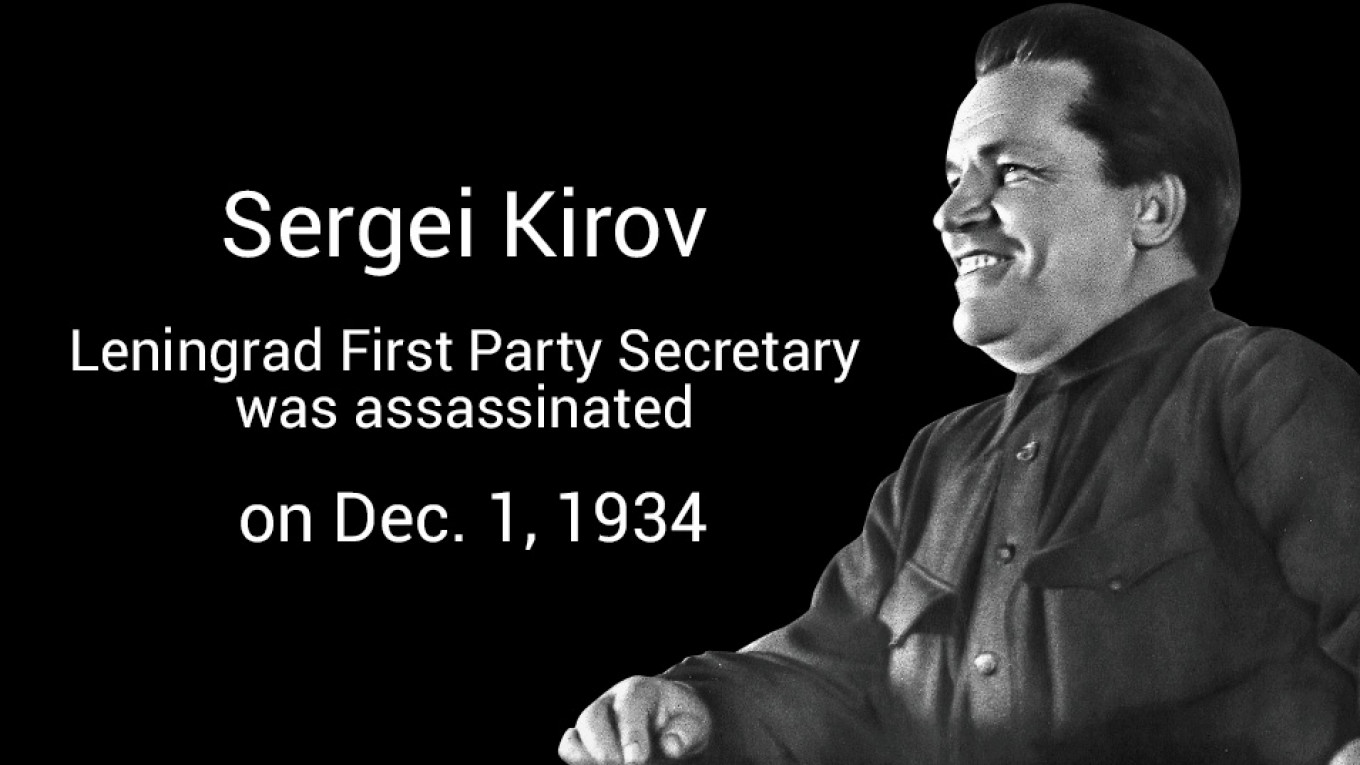
On Dec. 1, 1934 Sergei Kirov, Party boss of Leningrad, was gunned down as he left his office. In the Soviet Union, this case turned out to be like the Kennedy assassination in the U.S.: a charismatic leader murdered in his prime by a lone assassin, whose death would burnish his memory and go on to spawn countless conspiracy theories.
The murder was pivotal in Soviet history: It created a martyr whose death Stalin would use to justify the waves of mass arrests that dominated the rest of the decade, signaling a turn to brutally repressive times in which critical speech was seen as tantamount to terrorism.
The Soviet regime was determined for Kirov’s death to be marked with smothering gravitas – leaden eulogies, solemn silences, and parades of Leningraders press-ganged into shuffling past the open casket in sub-zero temperatures. But ordinary people had other ideas.
Despite the risk of denunciation to the secret police, Kirov’s murder prompted an outpouring of sharp humor and a carnivalesque atmosphere that gripped residents of Leningrad and beyond. A seemingly untouchable leader had been shown to be mortal, and for a handful of days the grey predictability of Soviet life was turned upside down. Although Kirov is now remembered as a man of the people, with his former apartment transformed into a shrine-like museum, secret reports gathered in the aftermath of the shooting reveal a city gripped by subversive acts and defiant humor.
The festive spirit was in many places too strong to allow the official five-minute silence in Kirov’s honor to go uninterrupted. In Leningrad’s OGPU Factory, one of the workers farted loudly and, according to the official report, “insolently,” while elsewhere the solemn event was intentionally disrupted by cries of “Fire!” or workers intentionally making as much noise as possible. At the Krasny Vyborzhets Factory, D. Krikunov was told to signal the five-minute silence by sounding the workshop siren, but he turned the hand crank so slowly it sounded like a slurring barrel organ, completely undercutting the significance of the event and leaving him and his workmates howling with laughter.
In these hungry years, many people couldn’t help but notice how well-fed Kirov appeared. Sarcastic rumors circulated that, with Kirov dead, there would now be plenty of food for the ordinary people. As one chastushka (traditional four-line comedic verse) had it:
В Ленинграде Кирова убили,
Хлеб без карточек пустили,
А если Сталин умрет,
Жизнь по-новому пойдет.
When Kirov was popped,
Ration cards were dropped,
So if Stalin dies,
A new life will arise.
Similarly, a certain Podoba, working at Leningrad’s Bebe Factory, asked pointedly, “What did Kirov ever do for the workers besides develop a paunch?” while Candidate Party Member Strelkov of the Molotov Factory wondered aloud “just how many horses will it take to carry Kirov’s coffin?” Others suggested reading Kirov’s name backwards to spell vorik (petty thief).
Although the NKVD considered these jokes and antics to be criminal acts, for most people the fourth wall of the Soviet drama had simply fallen away and they were determined to use the holiday to blow off some steam. People gathered in their friends’ apartments to shoot the breeze, laugh, dance and drink together, raising sarcastic toasts to the late Kirov. Even a Party member like a certain Yakovlev found himself in trouble for hosting “a party at his home with drinking and dancing” on the official day of mourning.
A Soviet Day of the Dead seemed to be underway. With normal routines shattered and the shops and canteens specially stocked to mark the funeral, it could be genuinely unclear to the people what this day was supposed to mean. One M. Ananeva, a young worker in the kitchens of the Voroshilov Factory, boldly approached Party Organiser Ulin and asked to be signed up “for the party.” Ulin responded in some confusion, “What party? There’s no party, but a gathering of our factory workers to mourn.” Ananeva, with apparent sincerity, persisted in some distress, “But will there really be no dancing?” After Ulin rebuffed her again, she exclaimed, “I’ve been to the coffin and cried, [I’ve been] to the meeting and cried, and now I want to be able to be cheerful and not have to cry all the time.”
This extraordinary and surreal interaction reveals just how chaotic the aftermath of the assassination was. If Kirov’s murder would soon allow Stalin carte blanche to initiate a program of mass repressions, for these few days ordinary Soviet people gave themselves a chance to break exuberantly free.
Jonathan Waterlow is the author of It’s Only a Joke, Comrade! Humour, Trust and Everyday Life under Stalin, available here.

Leave a Reply